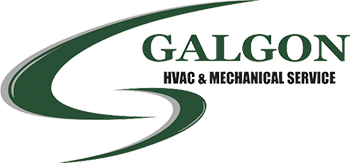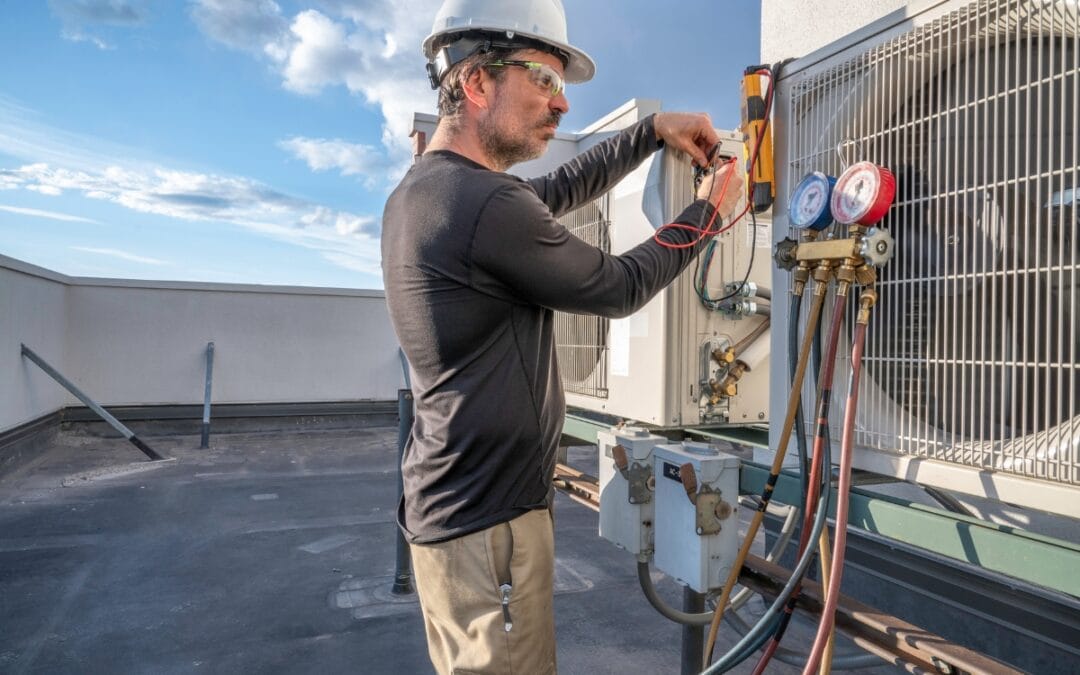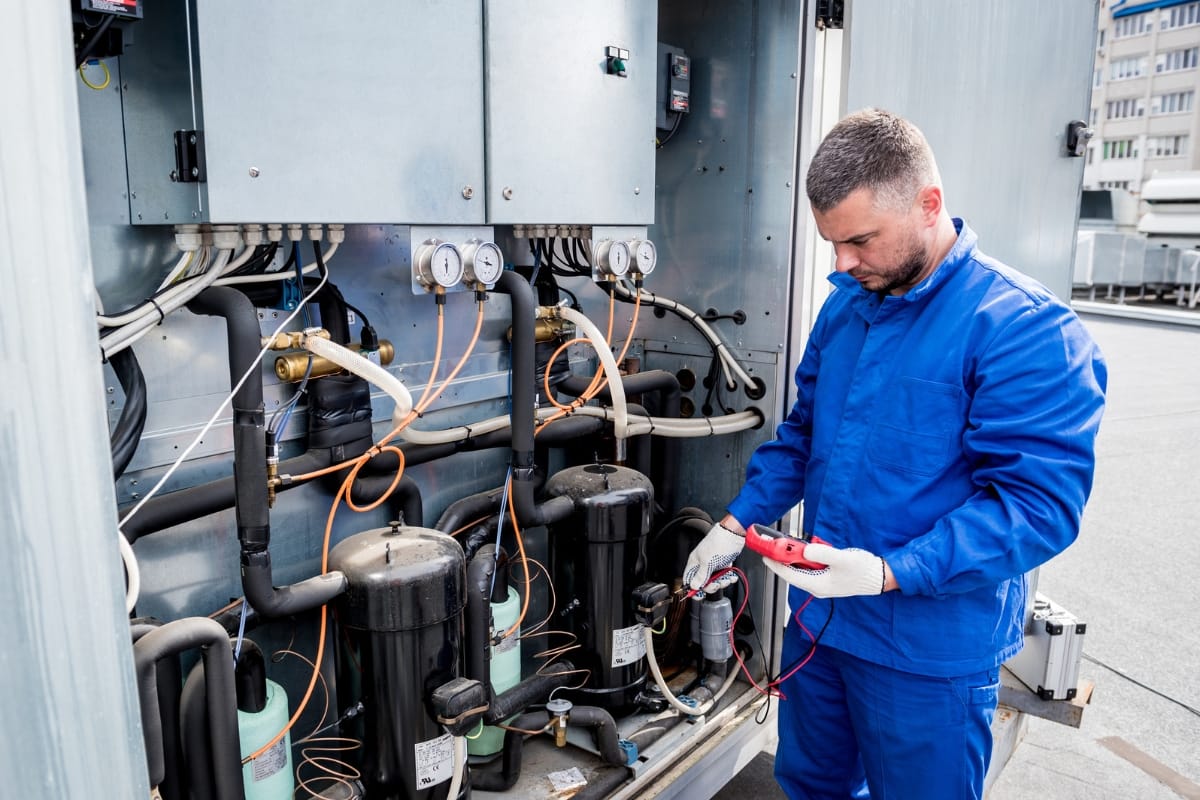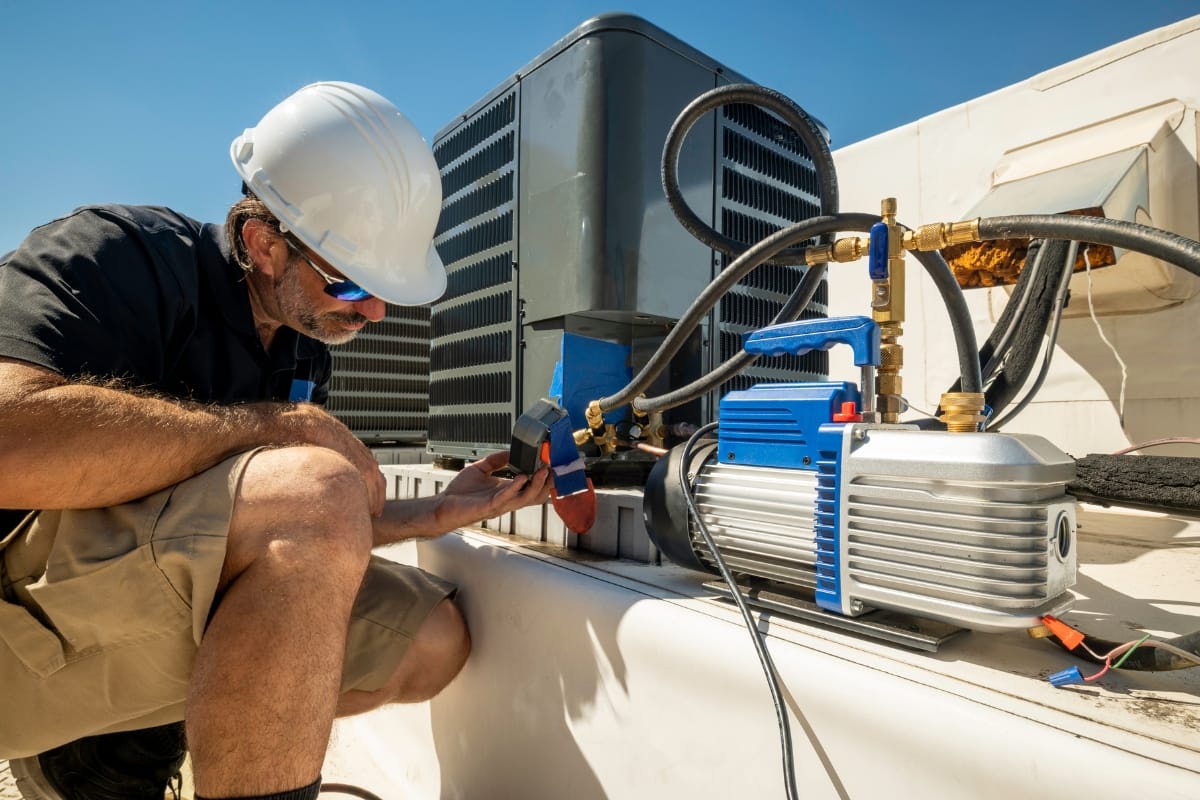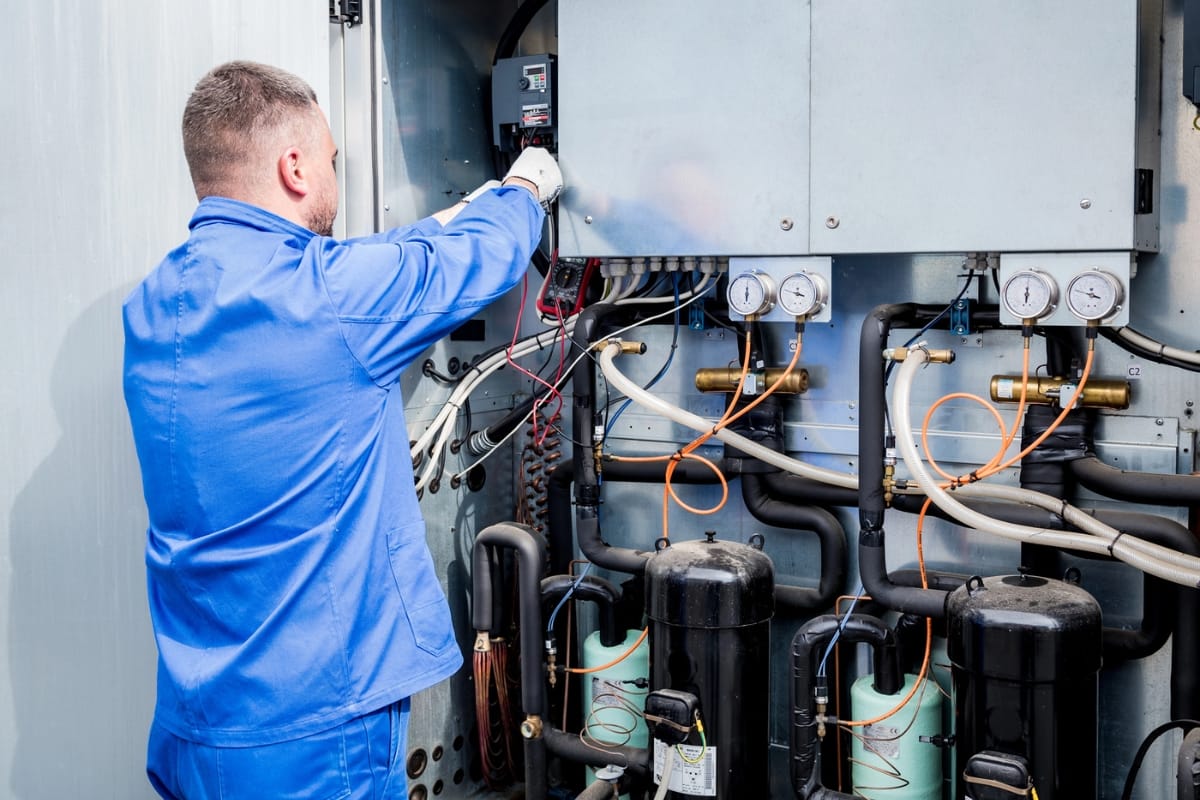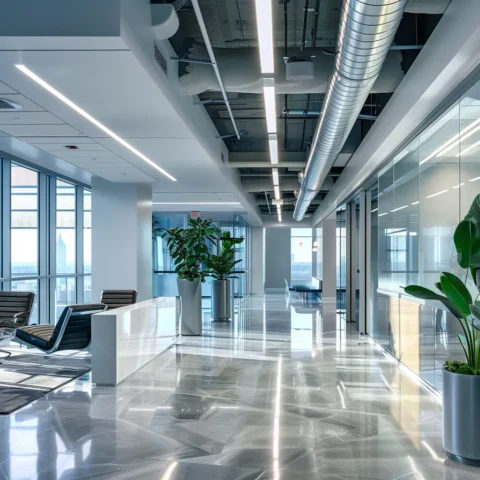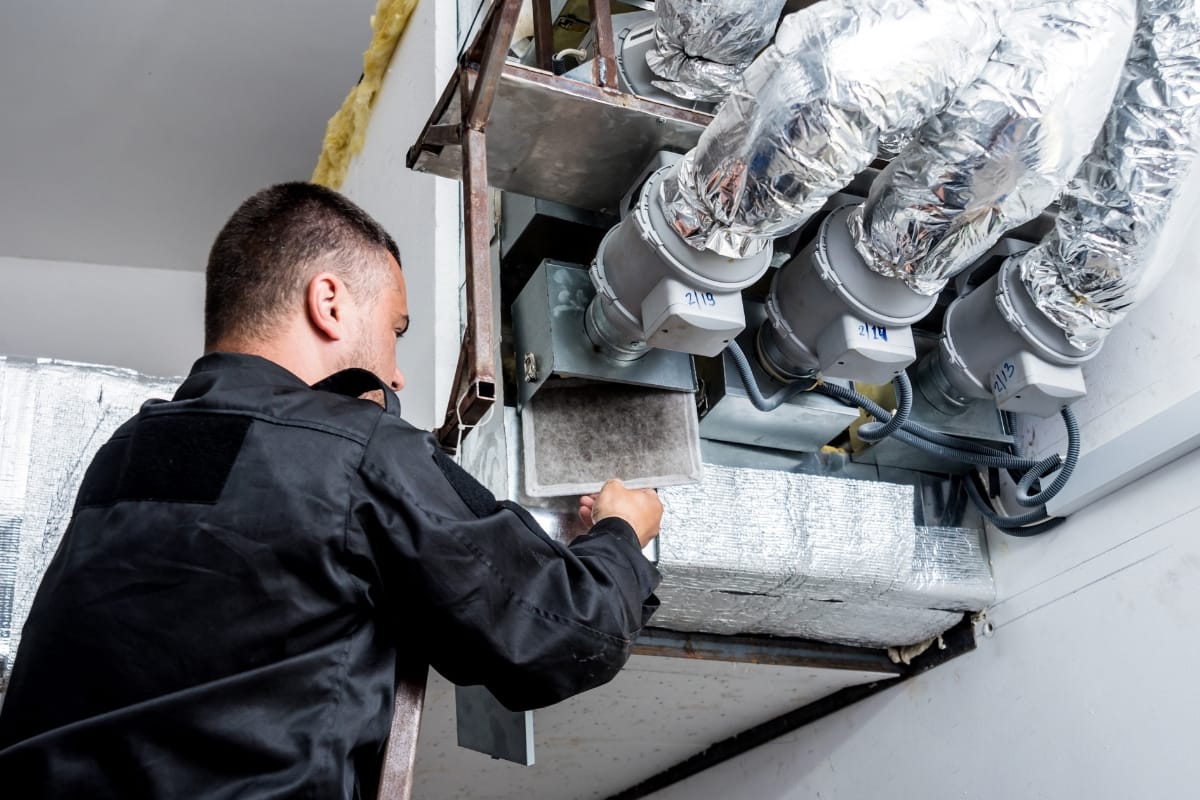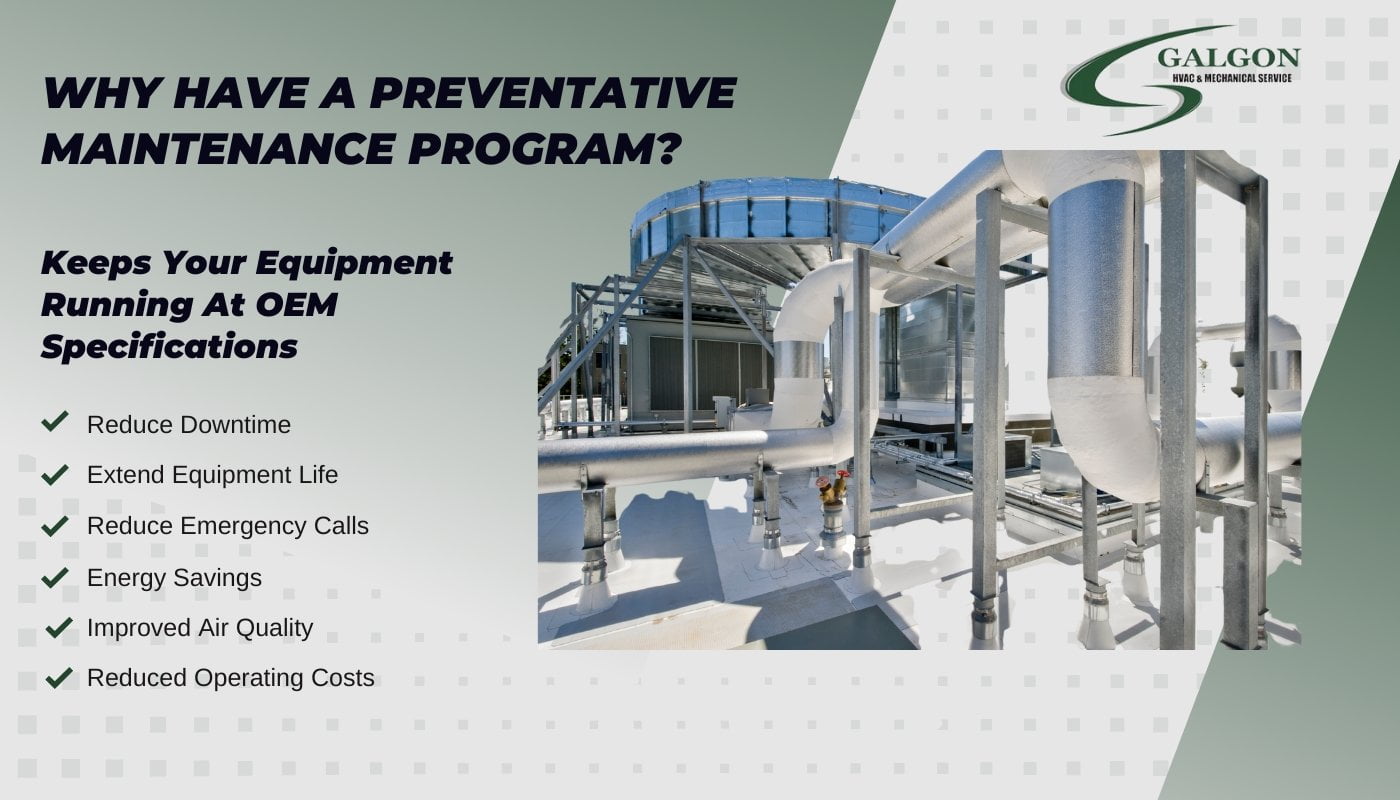When an HVAC system fails in a commercial setting, it’s more than just an inconvenience—it can disrupt operations, drive away customers, and lead to significant financial losses. That’s why timely commercial HVAC repair services are essential for keeping businesses running smoothly. By addressing issues early and maintaining optimal system performance, these services help prevent unexpected breakdowns and costly downtime. In this guide, we’ll explore how expert HVAC repair can protect your bottom line, improve energy efficiency, and ensure a comfortable environment for employees and clients alike.
Stop Downtime Before It Starts With Commerical HVAC Repair Services
What Are Commercial HVAC Repair Services and Why Are They Essential for Businesses?
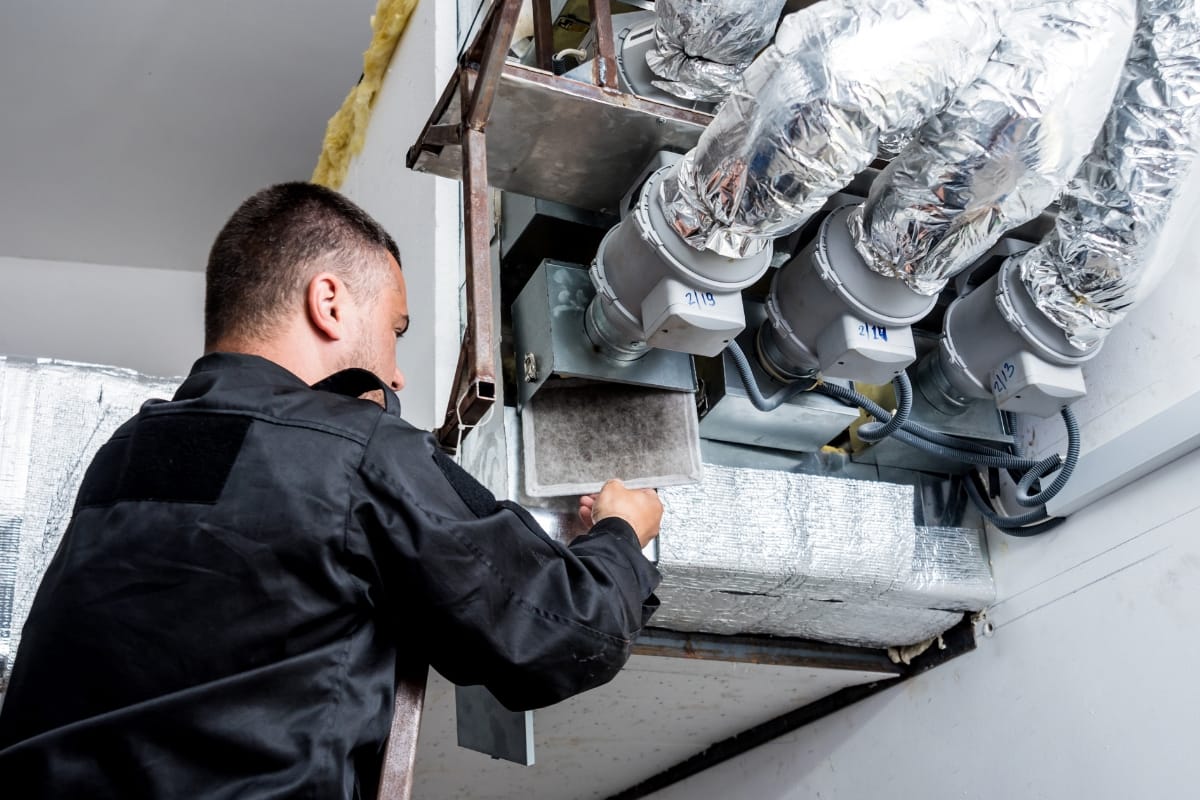
Commercial HVAC repair services include repair, maintenance, and installation tasks that keep HVAC systems operating optimally. A well-functioning HVAC system is crucial, as it directly affects employee productivity, customer satisfaction, and overall energy consumption. System failures or inefficiencies can quickly escalate into operational downtime, leading to lost revenue and increased costs.
These services cover troubleshooting electrical and mechanical issues, replacing worn components, calibrating thermostats, and ensuring proper refrigerant levels. Skilled technicians use advanced diagnostic tools to quickly identify and correct malfunctions. Many metro Atlanta businesses—offices, retail centers, hospitals, and industrial facilities—rely on these services to meet varying climate control demands. For example, during hot summers, a failing air conditioning system can create unsafe conditions and customer discomfort, while in winter, heating system issues can compromise safety and affect critical business processes.
Moreover, regular HVAC repairs not only restore immediate functionality but also contribute to long-term system performance. They lead to lower energy bills, fewer breakdowns, and prolonged equipment life. Industry studies show that businesses investing in HVAC maintenance may enjoy energy savings of up to 20% and fewer unexpected repair costs, making these services a strategic investment for operational continuity and lower expenses.
What Types of Repairs and Maintenance Do Commercial HVAC Services Include?
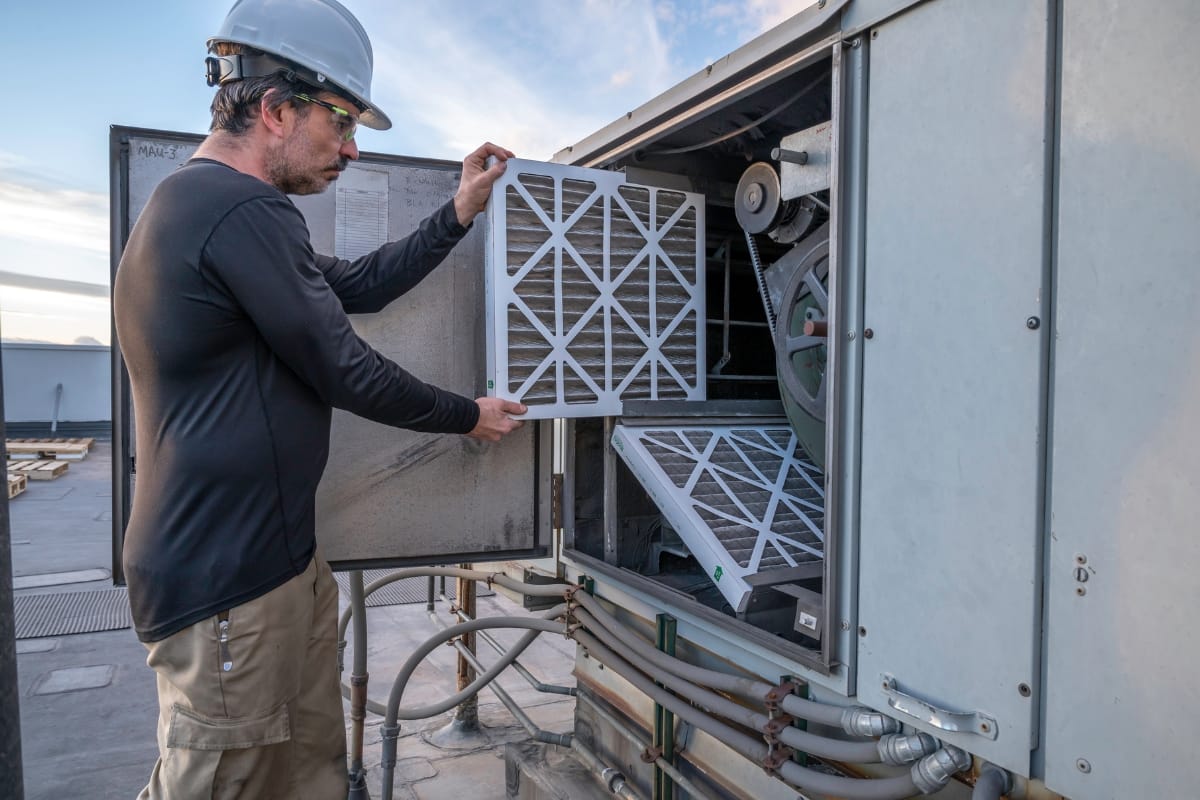
Commercial HVAC systems require consistent upkeep to remain reliable and efficient. Maintenance and repair tasks can vary depending on system complexity, usage, and age, but there are some common procedures most systems will undergo. These include scheduled inspections, system diagnostics, and repair work aimed at addressing mechanical wear, airflow issues, and energy efficiency concerns.
Repairs typically involve fixing problems like electrical faults, damaged wiring, failing compressors, and refrigerant leaks. These issues can impact performance if not resolved promptly. In addition, maintenance work often includes replacing air filters, cleaning coils, checking thermostat calibration, inspecting ductwork, and lubricating moving components. These steps are designed to improve air quality, regulate temperature, and maintain safe operation.
When commercial systems are maintained on a regular basis, the risk of system-wide failure drops significantly. Businesses benefit not only from fewer interruptions but also from improved performance during peak usage seasons.
How Do Commercial HVAC Repairs Impact Business Operations?
An HVAC breakdown in a commercial setting can quickly disrupt daily routines. In environments like office buildings, retail spaces, or production facilities, poor climate control can affect employee focus, customer satisfaction, and even equipment performance. If indoor temperatures rise too high or drop too low, it can lead to discomfort, lowered productivity, and in some cases, temporary closures.
Even minor issues, such as inconsistent cooling or excessive noise, can affect how a space functions. In retail or hospitality settings, customer perception of the environment plays a direct role in return visits. That’s why it’s important to respond quickly to problems, ideally before they interrupt daily operations.
Well-trained technicians can often diagnose and resolve many issues in a single visit. Rapid repairs reduce the risk of long-term downtime, keep employees comfortable, and allow businesses to maintain a professional environment for clients and customers.
Why Is Regular Maintenance So Important for Long-Term HVAC Performance?
Preventive maintenance is key to avoiding costly repairs and extending the life of commercial HVAC systems. When systems are checked routinely, potential problems can be identified early and resolved before they develop into something more serious. Maintenance tasks like checking refrigerant levels, tightening electrical connections, cleaning blower components, and inspecting belts or motors help ensure each part of the system is working as it should.
Keeping a consistent maintenance schedule also supports energy efficiency, which can reduce operating expenses over time. Systems that are cleaned and calibrated regularly don’t have to work as hard to maintain target temperatures, resulting in lower energy bills and fewer emergency calls.
Businesses that invest in ongoing maintenance see improved reliability, better indoor air quality, and a longer return on their HVAC investment. Planning ahead for routine servicing not only keeps operations running smoothly but also helps avoid the stress and disruption of surprise system failures.
How Does Preventative Maintenance Reduce Costly Downtime in Commercial HVAC Systems?
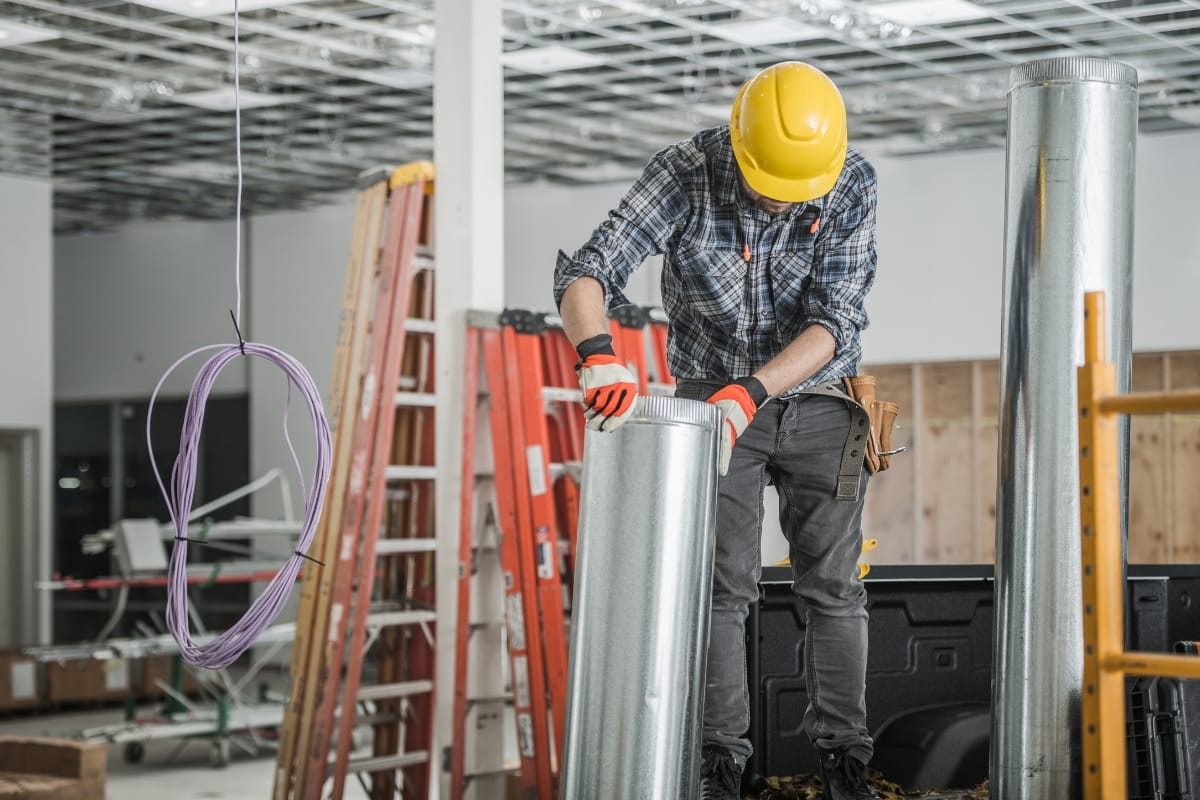
Preventative maintenance plays a critical role in keeping commercial HVAC systems operating reliably. Rather than waiting for something to go wrong, this approach focuses on identifying and addressing minor issues before they turn into major failures. Regular inspections, timely part replacements, and seasonal tune-ups can keep a system running smoothly and reduce the chances of unexpected breakdowns.
When maintenance is scheduled in advance and performed consistently, it improves system performance and cuts down on emergency calls. Businesses are less likely to deal with sudden malfunctions that interrupt daily operations. In commercial settings, where comfort, air quality, and system uptime directly impact productivity and customer satisfaction, minimizing downtime is essential. Preventative care also helps systems run more efficiently, which reduces strain on components and lowers energy use.
What Should Be Included in a Preventative Maintenance Plan?
An effective maintenance plan covers all the essential parts of an HVAC system. This typically includes scheduling inspections on a regular basis, such as every few months or seasonally. During these visits, technicians check for signs of wear, clean critical components, and make small adjustments that improve performance.
Tasks may include replacing air filters, cleaning evaporator and condenser coils, inspecting fan belts, testing thermostat accuracy, and lubricating moving parts. When necessary, parts showing signs of damage or wear are replaced before they fail. Catching these issues early not only reduces the chance of a breakdown but also ensures the system runs closer to its intended efficiency.
Preventative plans can also include emergency service provisions, but the primary goal is to avoid reaching that point. Keeping detailed records of service history helps track patterns and plan ahead for component replacement, upgrades, or more intensive repairs.
How Does Regular Maintenance Improve HVAC Reliability?
HVAC systems operate under continuous demand, especially during extreme temperatures. Without regular attention, small issues can go unnoticed until they cause larger, system-wide problems. Dust buildup, clogged filters, and worn components make the system work harder than necessary, which can lead to overheating or mechanical failure.
Routine maintenance helps identify these problems early. A well-maintained system performs more consistently, handles fluctuations in usage better, and recovers faster from minor disruptions. Over time, this increases reliability and extends the life of the equipment.
In hot climates, like the metro Atlanta area, the importance of system reliability cannot be overstated. A well-maintained HVAC unit is less likely to fail during summer months when demand is highest, which helps avoid uncomfortable working conditions and unexpected business interruptions.
What Financial Benefits Come From Preventative HVAC Care?
Investing in routine maintenance helps avoid large repair bills. Fixing problems while they’re still manageable is almost always less expensive than dealing with a system failure. It also reduces the likelihood of after-hours or emergency service charges.
Additionally, an efficient system consumes less energy, which leads to noticeable savings on utility costs. Over time, those savings, combined with fewer repair needs and a longer equipment lifespan, can make a significant difference to a company’s bottom line. In short, routine care protects both the system and the business that depends on it.
How Do Emergency Commercial HVAC Repair Services Minimize Business Interruptions?

When an HVAC system fails without warning, it can quickly disrupt business operations. Emergency repair services are designed to respond to these unexpected issues fast, minimizing the amount of time a system is offline. For businesses that rely on stable indoor temperatures and ventilation—like retail stores, offices, manufacturing plants, or healthcare facilities—even a few hours without heating or cooling can cause problems. Equipment might overheat, employees may be unable to work comfortably, or customers might avoid the space entirely.
Rapid emergency response teams help reduce the risk of extended shutdowns. They arrive quickly, assess the situation, and begin repairs with the goal of restoring function as soon as possible. In high-demand environments, this quick turnaround can make the difference between staying open or losing a day’s worth of productivity and sales.
Why Does 24/7 HVAC Support Matter for Businesses?
Heating and cooling systems don’t follow a predictable schedule, and failures often happen at the worst possible times. Nights, weekends, and holidays are just as likely to bring HVAC issues as any weekday. For this reason, around-the-clock availability is a key part of limiting disruption.
When businesses know that repairs are available at any hour, they are better prepared to handle surprises. If a cooling system fails during an overnight shift, or a heating unit goes down in freezing weather, immediate service can prevent the situation from getting worse. Without fast intervention, companies may be forced to delay operations, send staff home, or risk equipment damage from exposure to poor environmental conditions.
In locations with hot summers or cold winters, like the greater Atlanta area, temperature-sensitive environments can become unmanageable quickly. 24/7 HVAC repair support ensures there’s always a way to address those problems before they lead to longer-term consequences.
How Are HVAC Failures Diagnosed and Repaired in Urgent Situations?
Skilled technicians are trained to quickly assess complex systems and find the source of failure. Using digital diagnostic tools, they can interpret system readings, test refrigerant pressure, inspect electrical connections, and monitor airflow to identify where the issue lies. These tools, along with their experience, help reduce the time it takes to get from problem to solution.
Most technicians come prepared with commonly needed replacement parts, which means many problems can be fixed on the first visit. For larger issues, temporary solutions may be put in place to stabilize conditions while long-term fixes are scheduled. The goal is always to get the system back up and running with as little downtime as possible.
For commercial buildings, quick and accurate repairs are not just about convenience—they’re about keeping the business running. Emergency HVAC repair services allow companies to respond swiftly, restore comfort, and protect daily operations from unnecessary delays.
What Role Do System Upgrades and Retrofits Play in Preventing HVAC Downtime?
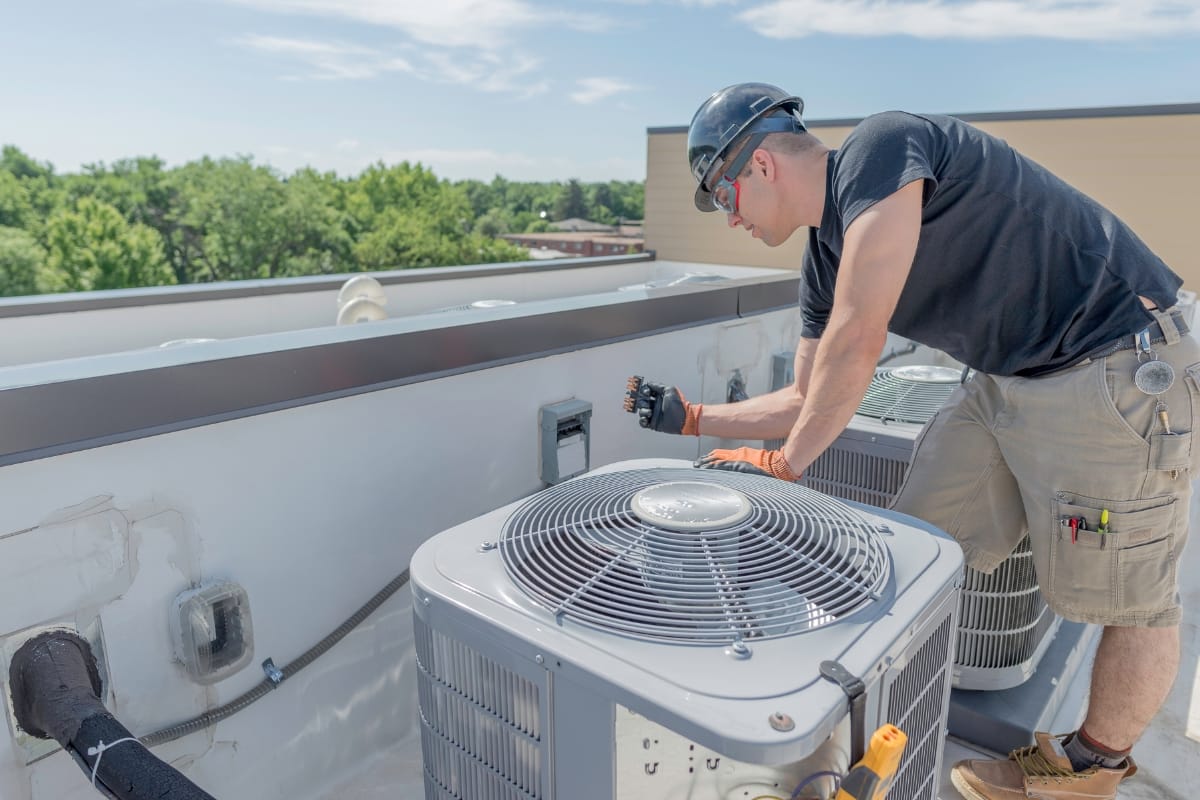
Over time, older HVAC systems may not meet modern energy standards and can become prone to failures due to outdated components. Upgrading or retrofitting these systems with more efficient equipment not only improves overall performance but also reduces the likelihood of downtime.
System upgrades might involve installing energy-efficient compressors, smart thermostats, or updated control systems with building automation technology. Retrofits can enhance air quality and energy usage, providing diagnostic capabilities that alert maintenance teams early to potential problems. Such modernization extends the system’s useful life while improving efficiency and reducing operational costs.
How Can Upgrading HVAC Systems Enhance Energy Efficiency?
Modern HVAC equipment is designed with advanced energy conservation features, such as variable speed drives, enhanced inverter technology, and smart scheduling systems. These features optimize power consumption, reduce energy waste, and lower utility bills.
Upgrading to systems like high-efficiency heat pumps or variable refrigerant flow (VRF) units can often offer energy savings of 15–25% compared to older models. Furthermore, integration with building automation systems can lead to even more precise temperature regulation and continuous performance monitoring, ensuring long-term energy efficiency and cost reductions.
When Should Businesses Consider HVAC System Retrofits?
Businesses should consider retrofitting when signs of aging appear—such as more frequent repairs, increased energy bills, or degraded indoor air quality. Retrofitting is a cost-effective alternative to a complete system replacement. Upgrading critical components like control systems or installing new sensors can extend the life of existing systems while delivering improvements in efficiency and performance that reduce future downtime.
How Do Customized HVAC Solutions Cater to Specific Business Needs and Reduce Downtime?
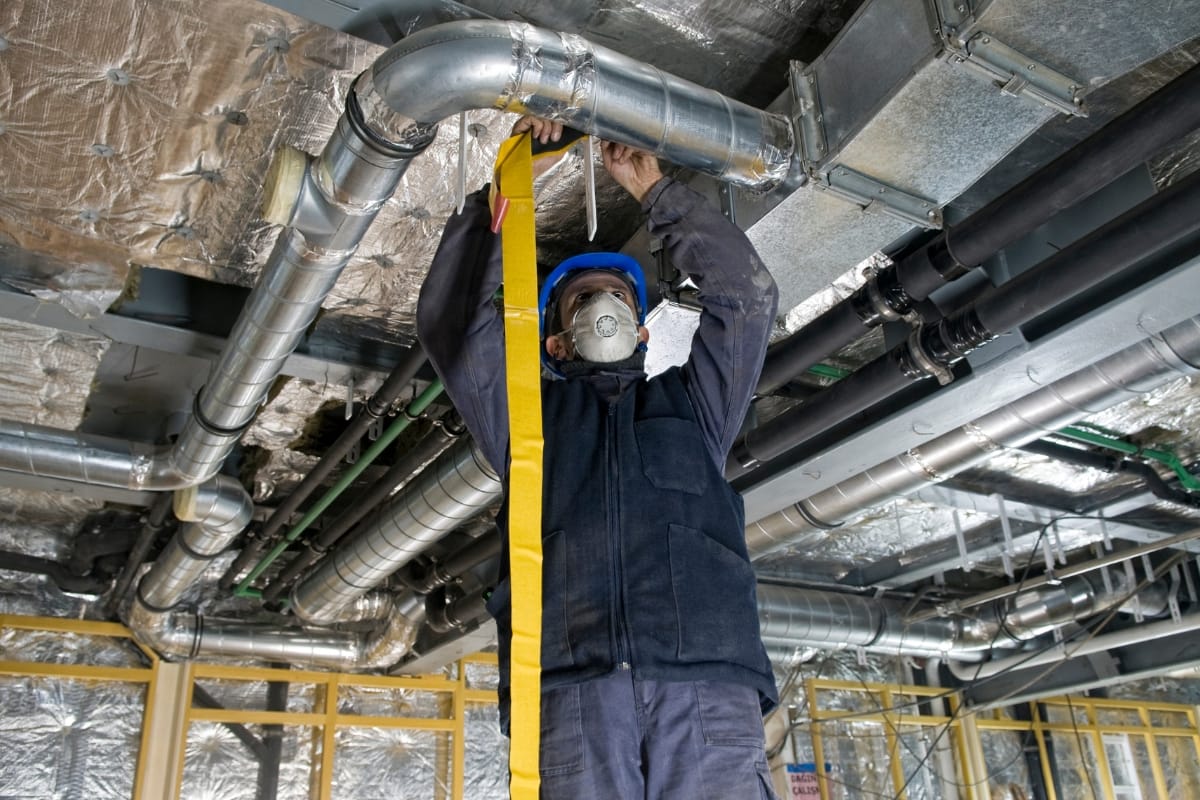
Every commercial space operates differently, and HVAC needs vary depending on the size of the building, its layout, and how it’s used. Customized HVAC systems are designed to reflect these differences. Rather than installing a standard system across all types of buildings, a tailored setup considers the unique needs of each space. Factors like the number of occupants, hours of operation, equipment usage, and exposure to outdoor elements all play a role in determining what kind of system is best.
In places like metro Atlanta, where climate conditions shift dramatically between seasons, a custom-designed HVAC system helps maintain indoor comfort while operating efficiently. When the system is designed with the building’s specific conditions in mind, it reduces the risk of overworking equipment or creating temperature inconsistencies between rooms. This leads to more stable performance and fewer interruptions to business operations.
How Are HVAC Solutions Tailored Based on Building Size and Usage?
System design begins with a detailed review of the building itself. Large buildings with multiple zones often require systems that can handle varied demands in different areas at the same time. In contrast, smaller buildings might need more targeted temperature control in specific rooms. Usage patterns also matter. For example, a facility running 24 hours a day will have different needs than a business that operates only during daytime hours.
During the planning process, energy audits and load calculations help determine the system’s size and configuration. This ensures that the HVAC system is not underpowered or oversized, which can lead to wasted energy and inconsistent climate control. By matching the system’s capacity to the actual demands of the space, businesses gain better efficiency and fewer instances of equipment failure. This design approach not only protects comfort levels but also reduces downtime caused by system strain or poor performance.
Are There Affordable HVAC Repair Strategies for Budget-Conscious Businesses?
Managing HVAC costs is a priority for many businesses, especially when unexpected repairs arise. While full system replacements can be expensive, there are affordable strategies that help reduce repair expenses without sacrificing performance. Preventative maintenance programs are one example. These typically include routine inspections and basic servicing at set intervals, helping catch problems early before they become major issues.
Many companies also choose to incorporate energy-efficient upgrades during repairs, such as replacing outdated parts with newer, more efficient models. Over time, these updates help lower energy bills and reduce the frequency of repairs. Budget-conscious businesses may also benefit from working with providers who offer predictable maintenance plans, allowing them to spread costs over time instead of facing large, one-time expenses.
What Are the Long-Term Benefits of Partnering With Reliable Commercial HVAC Repair Services?
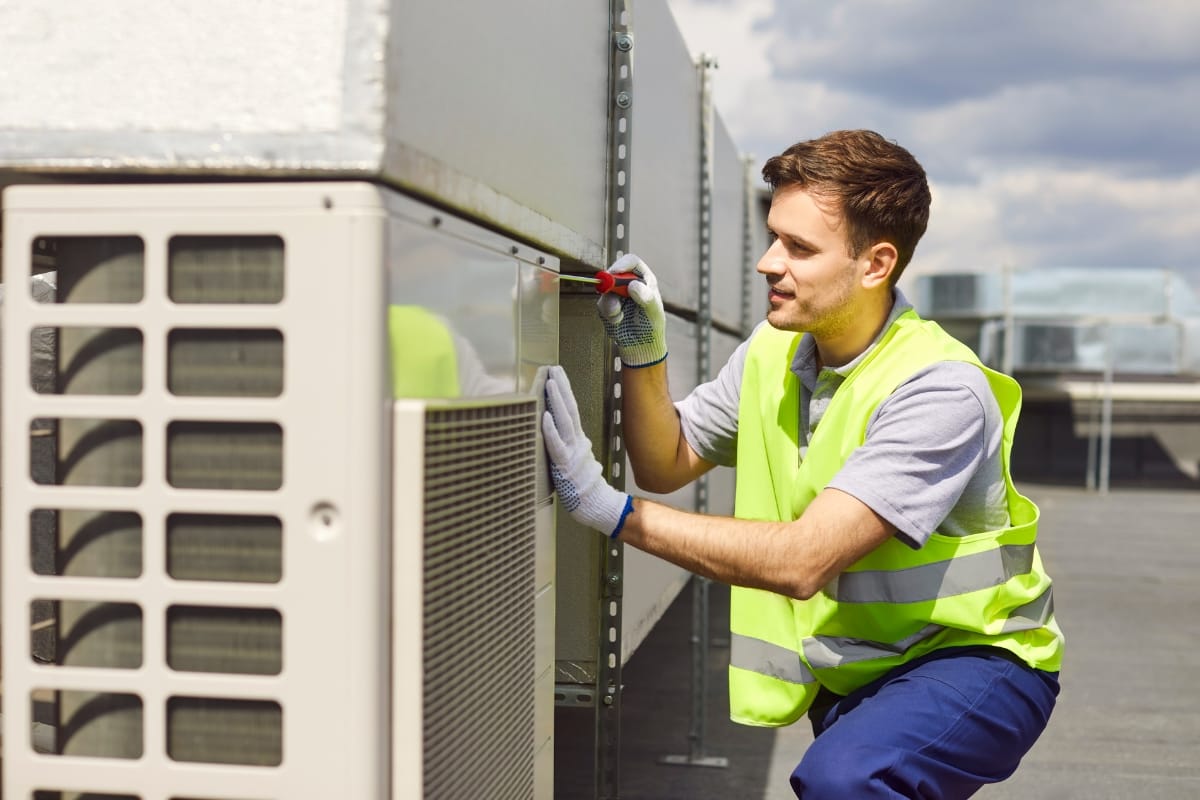
Choosing a dependable HVAC repair partner offers more than just quick fixes. Over time, the relationship supports a maintenance routine that keeps systems running reliably and efficiently. With regular checkups and consistent attention, HVAC systems are less likely to break down unexpectedly and more likely to run at peak performance. This approach can help reduce energy use, lower long-term operating costs, and delay the need for system replacements.
A consistent repair team also understands the unique needs of your building. Their familiarity with your system allows them to identify issues more quickly and make informed recommendations. As equipment ages, having a repair provider who has tracked its performance over time can make a difference in how long it lasts and how well it functions.
How Does Routine HVAC Service Help Extend Equipment Lifespan?
Routine service plays a major role in protecting HVAC components from excessive wear. Regular inspections, cleaning, and timely repairs prevent small issues from turning into serious failures. Parts like compressors, blowers, and coils are especially vulnerable when neglected. Keeping them clean and operating within the right conditions helps avoid strain that can shorten the system’s lifespan.
When HVAC systems are well-maintained, they typically perform better and last longer. Industry data shows that systems with consistent maintenance can function effectively for 15 to 20 years. On the other hand, systems that don’t receive proper care often need replacement much sooner due to accumulated damage or inefficient performance.
What Kind of Energy and Cost Savings Can Maintenance Provide?
One of the most noticeable benefits of preventative HVAC care is energy savings. A well-tuned system doesn’t have to work as hard to control temperature or airflow, which lowers energy use. Businesses may see monthly utility bills decrease by as much as 15 to 25 percent compared to buildings with poorly maintained systems.
Maintenance also reduces the risk of major repairs. When small issues are addressed early, it’s less likely that components will fail and require emergency service. These emergency visits can be more expensive than scheduled maintenance, both in terms of repair costs and downtime. Over time, the combination of energy efficiency and reduced repair needs adds up to significant savings.
How Does Regular Service Help With Compliance and Workplace Safety?
Reliable HVAC repair teams help ensure that systems meet current building codes and safety requirements. In many industries, staying compliant with regulations related to air quality, ventilation, and energy efficiency is essential. Failing to meet these standards can lead to fines or legal issues.
Routine inspections also reduce safety risks related to poor air circulation, overheating, or system malfunction. In buildings where indoor climate control is critical to comfort or health, such as healthcare facilities or large offices, regular maintenance supports a safe environment for employees and visitors. By staying on top of both performance and compliance, businesses can operate more confidently and avoid avoidable setbacks.
How Can Businesses Choose the Right Commercial HVAC Repair Service to Avoid Downtime?
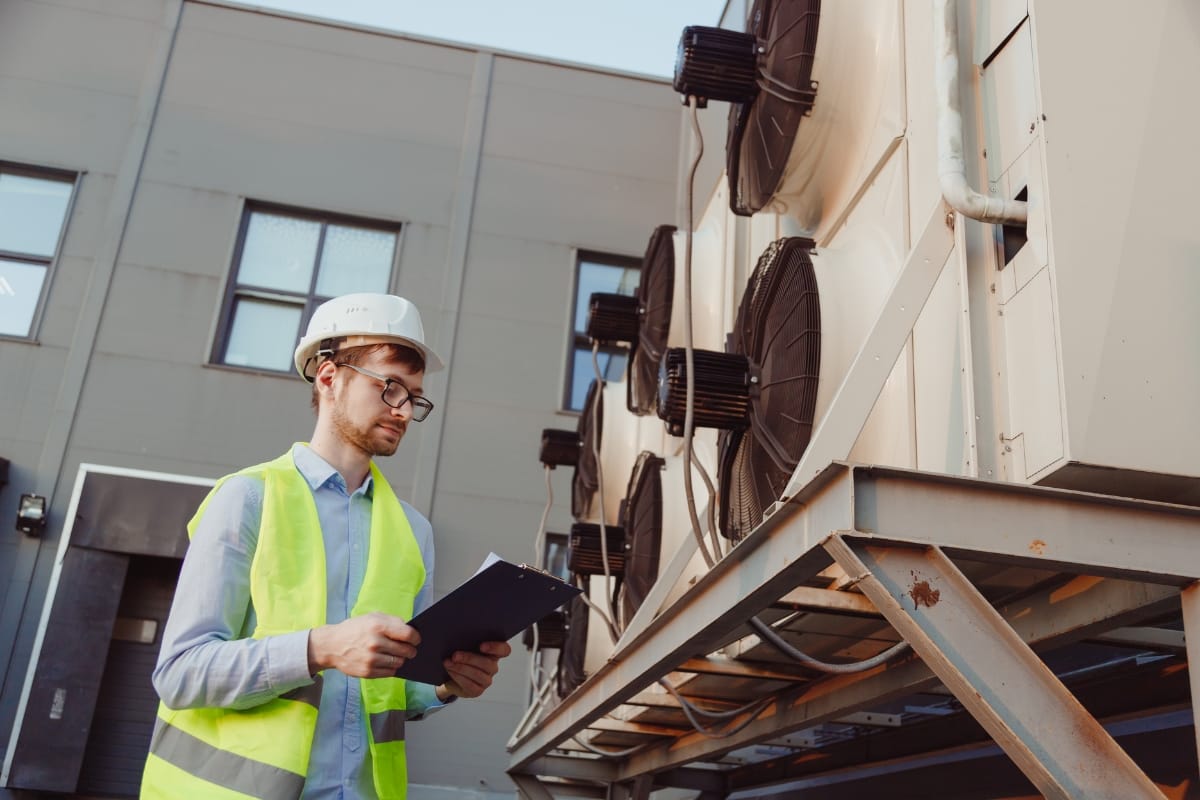
Choosing the right HVAC repair provider is a key part of keeping your business running smoothly. A reliable service helps maintain indoor comfort, prevents costly interruptions, and ensures systems work when you need them most. To make a smart decision, businesses should look closely at a company’s experience, response times, customer reviews, and technical capabilities. In busy markets like metro Atlanta, it is especially important to work with professionals who can respond quickly and handle a wide range of HVAC needs.
Start by researching multiple providers. Look at how long they’ve been in business, whether they offer emergency support, and how flexible their scheduling is. Read online reviews and ask for recommendations from nearby businesses. A provider with a consistent track record of good service and clear communication will likely offer more dependable long-term support.
What Qualifications and Certifications Should Businesses Look For?
Technicians should hold industry-standard certifications, such as NATE certification or EPA Section 608 for handling refrigerants. These credentials confirm that the team understands safety regulations and follows best practices. Businesses should also ask whether the company is part of professional groups like the Air Conditioning Contractors of America, which often set higher standards for member companies.
Looking at real-world results is just as important. Ask to see case studies or performance data that show how the provider has handled similar issues for other clients. This helps verify their experience with commercial systems and their ability to respond in high-pressure situations.
How Important Is Response Time and Service Availability?
Fast response times make a significant difference in minimizing disruptions. If an HVAC system goes down in the middle of the workday, each hour lost can mean less productivity, lost sales, or poor customer experience. A provider that can respond within one to two hours and offers around-the-clock service gives businesses the confidence that help will be available when it matters most.
This is especially important for industries where temperature control is critical, such as food service, data centers, or healthcare facilities. Consistent availability and timely repairs help avoid larger system failures and maintain a safe, comfortable environment for staff and customers.
What Questions Should Businesses Ask Before Hiring HVAC Repair Providers?
Before signing any agreement, it’s important to ask the right questions. Businesses should confirm the provider’s average response time, whether they offer 24/7 emergency support, and what kind of service guarantees are included. It’s also worth asking about the experience level of their technicians, how they document maintenance visits, and what their policies are for follow-up repairs.
Understanding the cost structure is just as critical. Ask for a breakdown of maintenance fees, emergency repair costs, and any additional charges for after-hours service. Clear communication from the beginning helps prevent misunderstandings and builds a working relationship that can support your business over the long term.
Frequently Asked Questions
Q: How frequently should commercial HVAC systems be serviced? A: They should be serviced at least twice a year, with additional checks during periods of heavy use to detect early signs of wear and prevent unexpected failures.
Q: What are the advantages of choosing a service provider with 24/7 emergency support? A: Providers with 24/7 support ensure rapid response times, which minimize downtime and prevent severe disruptions in productivity and customer service.
Q: Can regular maintenance really reduce overall energy costs in large commercial properties? A: Yes, routine tasks like cleaning coils, replacing filters, and calibrating thermostats improve energy efficiency, often resulting in savings of 15–25% on monthly bills.
Q: What should businesses look for when evaluating HVAC repair service providers? A: Look for providers with strong industry certifications like NATE, positive testimonials, documented case studies, and transparent pricing models. Fast response times and comprehensive service offerings are also key factors.
Q: How do system upgrades or retrofits benefit existing HVAC systems? A: Upgrades and retrofits improve system control, reduce energy consumption, and extend equipment lifespan—all of which lower future repair costs and reduce the risk of unexpected downtime.
Q: Are customized HVAC solutions more cost-effective than standard repair services? A: Yes, because they are tailored to a building’s specific needs, ensuring only necessary components are upgraded, thereby reducing wasted energy and lowering both utility and repair costs over time.
Q: How can partnering with a reliable HVAC service provider enhance compliance with industry safety standards? A: A dependable provider performs regular inspections and issues certifications that align with local and federal guidelines, helping businesses maintain compliance, avoid legal penalties, and ensure a safe environment for occupants.
Final Thoughts
When your HVAC system falters, every minute of downtime can hit your bottom line—but with Galgon HVAC & Mechanical Service on call, you can keep operations running smoothly year-round with our commercial HVAC services. Their expert technicians respond quickly to diagnose and fix issues before they escalate, helping you avoid emergency shutdowns and protect your profits. Don’t wait until the next breakdown—call (404) 352-1500 today or visit our website to fill out the Request Service/Quote form. Partner with Galgon HVAC & Mechanical Service and safeguard your business against costly interruptions.
